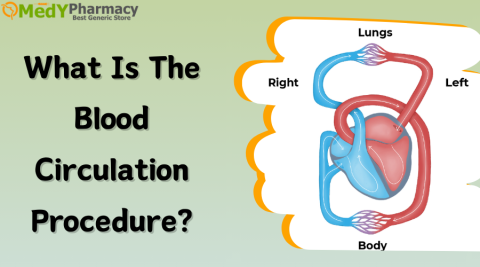Cancer
Your sexual life may change as a result of the physical and psychological side effects of cancer treatment. These alterations are referred to by doctors as “sexual side effects.” They include modifications to your libido and level of interest in having sex.
Side effects from sexual activity might be emotional, mental, or physical. Your emotions, sense of well-being, energy level, and body image can all be impacted by cancer therapy. And they’re all able to impact your sexual life.
Discuss whether receiving a cancer diagnosis and/or treatment will affect your sexual life with your healthcare team. Try to do this before beginning treatment. It may have an impact on the best course of treatment for you. Seek a second opinion if your concerns are really strong.
What is the sexual impact of cancer?
Sexuality is greatly impacted by both cancer and its treatments. According to research, 40% of men and over 60% of women with cancer report having sexual dysfunction. Furthermore, some medical procedures have minimal effects on sexual function, while others have significant ones that alter hormones and bodily parts and cause weariness, nausea, and other problems.
For instance, chemotherapy kills cells that divide quickly. Although it destroys malignant cells, it can harm organs like the ovaries, which are vital for producing hormones like estrogen and have a direct effect on the menstrual cycle. As a result of this cell death, women may experience “chemical menopause,” which is a period of no menstruation that is frequently brief but occasionally permanent, according to Johanna D’Addario, MHS, PA-C, a physician assistant at Smilow Cancer Hospital with expertise in gynecologic oncology.
Radiation therapy, a different type of cancer treatment, damages important reproductive organs including the ovaries and can result in permanent menopause by employing high-energy rays to destroy cancer cells. This is especially true if radiation therapy is used in the pelvic region. Additionally, radiation can leave the vagina scarred, which can make having intercourse unpleasant.
Issues with sex when undergoing cancer
Your sexual health may change as a result of or during treatment for cancer or its aftereffects. These alterations may be transient or long-lasting. Everybody is unique.
Treatments that directly impact your sex organs are more likely to have physical side effects. For instance, compared to certain other cancer therapies, having sex may be more negatively impacted by treatment for testicular, bladder, or prostate cancer. However, the fatigue and nausea associated with therapy for other malignancies, such as leukemia, might also make you less interested in sex. This is why discussing your unique diagnosis and what to expect with your healthcare team can be beneficial.
Side effects related to sex can include:
- Decreased desire for sex.
- Inability to achieve or maintain an erection long enough for penetrative intercourse. “ED” and “erectile dysfunction” are additional terms for this issue. Hence Fildena 100 Tablet is recommended for the treatment of ED.
- Premature ejaculation refers to experiencing an orgasm before you’re ready.
- Urinating (passing) while having an orgasm.
- Experiencing a “dry” orgasm, meaning no semen is released. This may occur if semen exits the penis through the bladder rather than the other direction.
- Discomfort during intercourse.
Inform your medical staff if you have any of these issues before starting treatment. They may be able to assist or stop the difficulties from growing worse if they are aware of the issue. Inform your medical provider of any new issues or modifications to your sexual health that occur during or following therapy.
Cancer, therapy, and your sex life
Cancer and its treatment may result in:
- illness or feeling unwell
- feelings of weakness or exhaustion
- Anger
- melancholy or despondency
- Pain from tension or anxiety
- intestinal issues like diarrhea bladder issues
- oral issues
- breathing issues
- alterations in appearance and permanent modifications to your sex hormones
If you experience any of these negative effects or emotions, you might not feel like having sex. Some claim that as a result of them, they feel less beautiful. You may lack the energy to care for your appearance or your hair, makeup, or grooming as much as you used to.
If you are someone’s partner in this scenario, you may be extremely concerned about how your partner comes across. This makes sense. However, after their treatment is finished or their symptoms are better managed, many patients report feeling better.
What is the sexual impact of cancer?
Sexuality is greatly impacted by both cancer and its treatments. According to research, 40% of men and over 60% of women with cancer report having sexual dysfunction. Furthermore, some medical procedures have minimal effects on sexual function, while others have significant ones that alter hormones and bodily parts and cause weariness, nausea, and other problems.
For instance, chemotherapy kills cells that divide quickly. Although it destroys malignant cells, it can harm organs like the ovaries, which are vital for producing hormones like estrogen and have a direct effect on the menstrual cycle. As a result of this cell death, women may experience “chemical menopause,” which is a period of no menstruation that is frequently brief but occasionally permanent, according to Johanna D’Addario, MHS, PA-C, a physician assistant at Smilow Cancer Hospital with expertise in gynecologic oncology.
Radiation therapy, a different type of cancer treatment, damages important reproductive organs including the ovaries and can result in permanent menopause by employing high-energy rays to destroy cancer cells. This is especially true if radiation therapy is used in the pelvic region. Additionally, radiation can leave the vagina scarred, which can make having intercourse unpleasant.
Conclusion
There are multiple connections between sexual function and cancer. For instance, erectile dysfunction and cancer Trusted Source are more prevalent in elderly persons.
Similar risk factors apply to both cancer and erectile dysfunction, and some research Trusted Source indicates that those with erectile dysfunction also have a higher chance of developing prostate cancer.
Sexual function can be impacted by cancer treatments, such as radiation therapy and surgery Trusted Source. Some patients will find that the changes do not go away after treatment, while others will maintain or even regain their sexual function.























